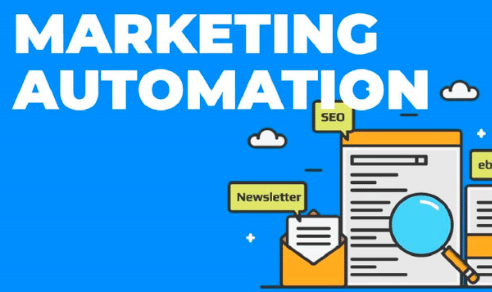In today’s fast-paced digital world, marketing has evolved into a dynamic and sophisticated landscape. With the rapid advancements in technology and the ever-changing consumer behavior, businesses need to stay ahead of the curve to thrive in the competitive market. This is where marketing automation comes into play. In this comprehensive guide, we will explore “What is Marketing Automation” and uncover its transformative impact on modern marketing campaigns.
What is Marketing Automation?

Marketing automation refers to the use of technology and software platforms to automate repetitive marketing tasks, streamline workflows, and optimize customer interactions. This powerful tool enables businesses to effectively target their audience, nurture leads, and deliver personalized content at the right time, all while freeing up valuable resources for other critical activities.
The Benefits of Marketing Automation
Marketing automation offers a wide array of benefits that can revolutionize your marketing efforts. Some key advantages include:
- Enhanced Lead Generation: By automating lead capture and nurturing processes, marketing automation helps identify potential customers and guides them through the sales funnel.
- Improved Customer Engagement: With personalized content delivery based on customer behavior and preferences, automation strengthens customer relationships and boosts engagement.
- Time and Cost Efficiency: Automation streamlines repetitive tasks, saving time and reducing operational costs, allowing your team to focus on strategic initiatives.
- Data-Driven Decision Making: Access to real-time analytics and insights empowers marketers to make informed decisions and optimize campaigns for better results.
- Scalability and Consistency: Marketing automation ensures consistency in messaging and allows businesses to scale their marketing efforts without losing quality.
Key Features of Marketing Automation Software
To fully understand the capabilities of marketing automation, let’s explore some key features of modern marketing automation software
- Lead Management: Efficiently capture, track, and nurture leads throughout the customer journey.
- Email Marketing Automatio: Automate email campaigns and personalize content based on user behavior.
- CRM Integration: Seamlessly integrate with Customer Relationship Management (CRM) systems for better data management and customer insights.
- Behavior-Based Triggers: Set up automated triggers based on customer interactions, such as website visits or email opens.
- Social Media Management: Schedule and automate social media posts for consistent brand messaging.
- Reporting and Analytics: Access real-time performance data and track campaign effectiveness.
- Workflow Automation: Streamline marketing processes and improve team collaboration.
Leveraging Marketing Automation for Your Business
Now that we’ve explored the fundamentals of marketing automatio, let’s delve into how you can effectively leverage this powerful tool for your business:
1. Understanding Your Target Audience
Marketing automatio is most effective when you have a deep understanding of your target audience. Use data analytics and market research to identify their needs, preferences, and pain points. This insight will enable you to create personalized and relevant content that resonates with your audience.
2. Implementing a Segmentation Strategy
Segmentation allows you to categorize your audience based on specific criteria, such as demographics, behavior, or purchase history. By dividing your audience into segments, you can deliver tailored messages that address their unique interests, increasing the likelihood of conversions.
3. Developing Engaging Email Campaigns
Email marketing remains a cornerstone of successful marketing strategies. With marketing automatio, you can create personalized email campaigns triggered by user behavior, such as abandoned carts or completed purchases. Engaging and timely emails nurture leads and keep customers connected to your brand.
4. Lead Nurturing and Drip Campaigns
Lead nurturing is crucial for guiding potential customers through the sales funnel. Set up drip campaigns that deliver a series of relevant and informative content to prospects, ensuring they are informed and engaged at each stage of their journey.
5. Analyzing Performance Metrics
To optimize your marketing efforts, continuously monitor and analyze performance metrics. Evaluate key performance indicators (KPIs) like open rates, click-through rates, and conversion rates. Use this data to refine your strategies and achieve better results over time.
6. A/B Testing for Continuous Improvement
A/B testing allows you to compare the performance of different marketing elements, such as subject lines, CTAs, and visuals. Use these insights to make data-driven decisions and improve the effectiveness of your campaigns.
Frequently Asked Questions (FAQs):
- Is marketing automation suitable for all types of businesses? Marketing automatio is beneficial for businesses of all sizes and industries. Whether you are a small startup or an established enterprise, automation can streamline your marketing efforts and drive growth.
- Can marketing automation replace human interaction with customers? While marketing automatio streamlines repetitive tasks, human interaction remains essential for building meaningful relationships with customers. It complements human efforts by providing personalized and timely communications.
- How can marketing automation improve ROI? Marketing automation enhances ROI by optimizing lead generation, nurturing, and conversion processes. It ensures that your marketing efforts are targeted and relevant, increasing the likelihood of customer engagement and conversions.
- Is marketing automation a costly investment? Initially, implementing marketing automatio may require some investment, but the long-term benefits outweigh the costs. The efficiency and effectiveness it brings to your marketing efforts can result in significant cost savings and improved revenue.
- What are some common challenges in marketing automation implementation? Some common challenges include data integration issues, content personalization, and ensuring the alignment of marketing and sales teams. Overcoming these challenges requires careful planning and coordination.
- How does marketing automatio handle customer privacy and data security? Marketing automatio platforms prioritize customer privacy and data security. They comply with data protection regulations and offer features like permission-based access to ensure customer data is handled ethically and securely.
Conclusion
In conclusion, Marketing Automation is a game-changing tool that empowers businesses to optimize their marketing efforts and foster meaningful customer relationships. By leveraging its capabilities, you can streamline your marketing workflows, enhance customer engagement, and achieve greater ROI. Stay ahead of the competition by embracing marketing automatio and unlocking the true potential of modern marketing.